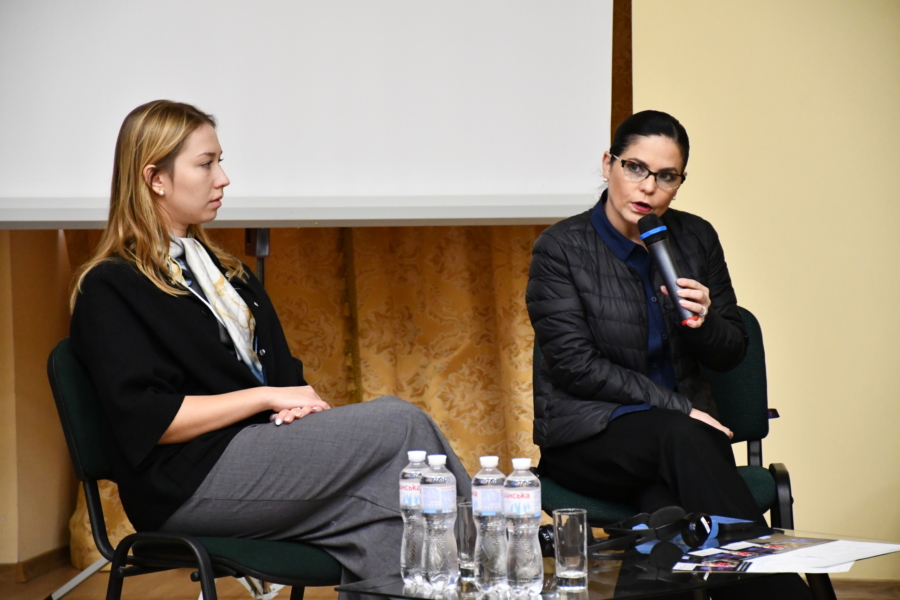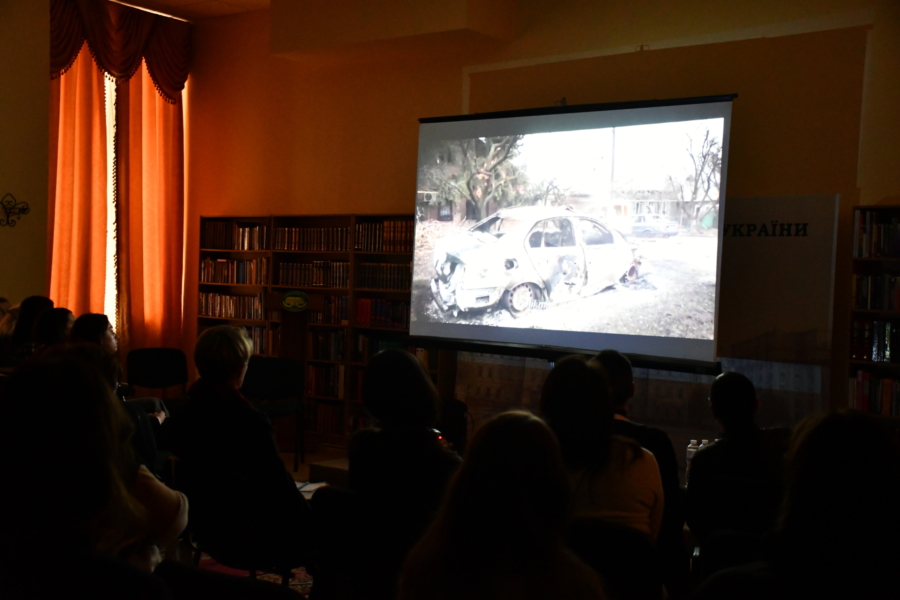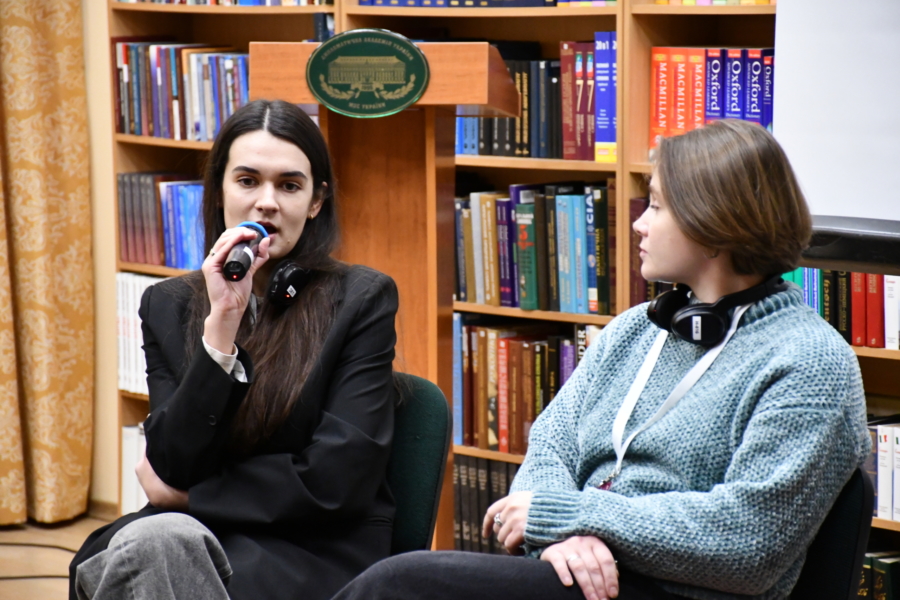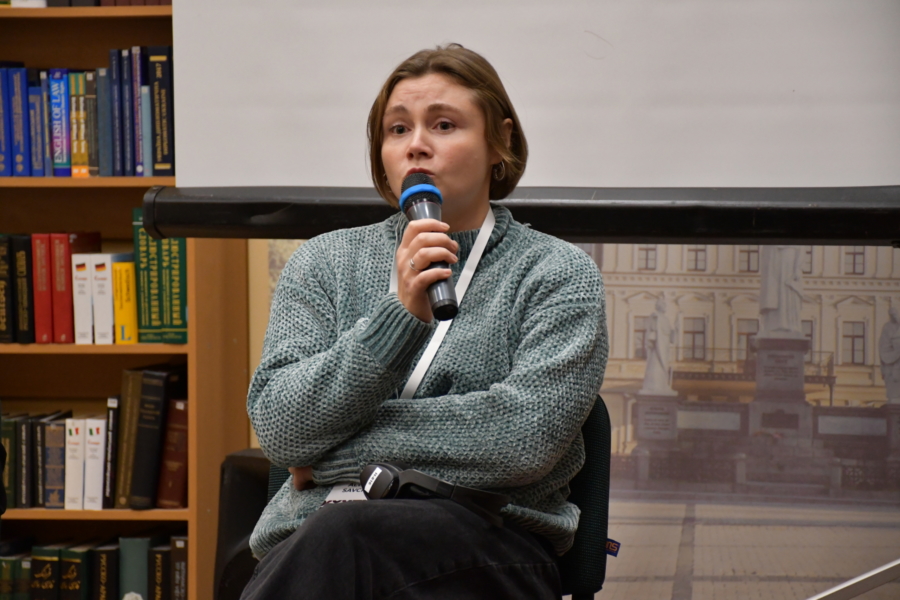“There is no future without childhood”: Mexican journalist Hannia Novell presented the film “Children of War” in Kyiv
Within the framework of the Second International Conference Crimea Global, a special event “The children of war: depiction of the wrecked life of Ukrainian minors through the lens of documentary journalism” was organised by the Human Rights Centre ZMINA.
 Mexican journalist Hannia Novell and International Advocacy Manager of ZMINA Tetiana Zhukova
Mexican journalist Hannia Novell and International Advocacy Manager of ZMINA Tetiana ZhukovaThe participants of the event watched the documentary “Children of War” (originally – “Los Niños de la Guerra“) by Mexican journalist Hannia Novell, followed by a discussion with the author of the film, also attended by Olesia Bida, a journalist of The Kyiv Independent, who worked on the investigative documentary “Uprooted” about the abduction of Ukrainian children by Russia, and Alona Savchuk, a Journalist who documented the lives of families of political prisoners in occupied Crimea and was banned from entering Crimea by the Russian Federation. The event was moderated by Tetiana Zhukova, International Advocacy Manager of the Human Rights Centre ZMINA.
The participants of the event discussed the importance of communicating information to the international community through visual art and the dangers of highlighting life under occupation.
The film “Children of War” demonstrates Russian crimes against Ukrainian children, including the shelling of civilian infrastructure, the deportation of children and the militarisation of the younger generation from the occupied territories. The film pays special attention to the work of Ukrainian government agencies and human rights organisations, such as Save Ukraine, which help to return children to Ukraine. One of the protagonists of the film “Children of War” is Kostia from Kherson, who was taken to Anapa, Russia, and offered to abandon his homeland. The boy managed to return to Ukraine thanks to pressure from the international community on Moscow.

Hannia Novell participated in the first international conference Crimea Global in 2023, when she was deeply struck by the topic of children’s lives during the war and the deportation of underage Ukrainians to Russia. During the presentation of the film, the author admitted that it was difficult for her to talk about the emotions she experienced while working: “I am a war journalist, I’ve worked in emergency situations. Many reporters who deal with such topics tend to grow tougher. But I couldn’t do that.“
Novel shared her observations that little is known about the terrible pages of Russian aggression against Ukrainians in her home country. “The war in Ukraine is a distant topic for Mexicans. We have many problems of our own – child murder, femicide, uncontrolled drug trafficking. But I want the voice of Ukrainians to be heard in Mexico. We, documentary filmmakers and journalists, should cover such stories.“
 Olesia Bida, journalist of The Kyiv Independent
Olesia Bida, journalist of The Kyiv IndependentOlesia Bida, the author of “Uprooted”, another documentary about child deportation, shared her experience of making the film with The Kyiv Independent: “We found information about Ukrainian children adopted by families from Russia, their addresses, began to research this topic thoroughly and tracked down the real parents of these children in Ukraine. I found the mother of a girl who was adopted by a Russian family. The real mother had lost contact with the child and did not even know where she was. Unfortunately, I cannot say that this child is now in Ukraine, like many other children. We need to act to keep them safe and bring them home.“
Alena Savchuk, who worked in Crimea from 2016-2018 and shot a series of photographs about life under occupation, primarily of Crimean Tatar families, also shared her research experience. “It was important for me to debunk Russian propaganda. After all, the outside world does not know what is really happening in Crimea. I tried to bring the voice of those people who live in Crimea and support Ukraine. This was the purpose of my work,” she said.
 Alena Savchuk, journalist and photographer
Alena Savchuk, journalist and photographerAt the end of the event, Hannia Novell invited everyone present to play a simple childhood game called Rock, Scissors, Paper, to remember their own childhood for a second. The Mexican documentary filmmaker then added: “Without a happy childhood, we have no future. Children want to play games, they want to be with their parents. The work of documentary filmmakers and journalists is dangerous, but we have to take risks to tell stories about these children.“
If you have found a spelling error, please, notify us by selecting that text and pressing Ctrl+Enter.















